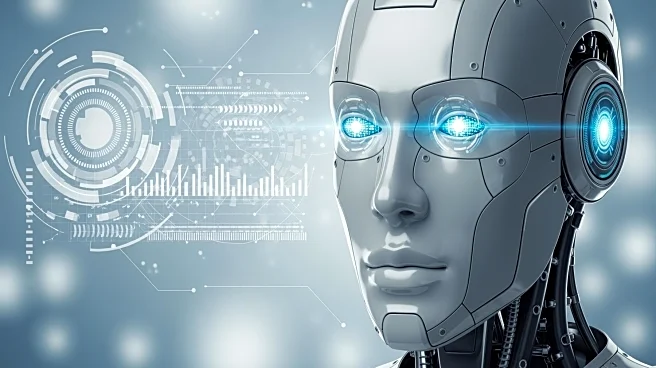What's Happening?
AI-generated headshots are gaining traction among job seekers as a cost-effective alternative to traditional professional photography. With the average cost of a professional headshot in the U.S. reaching hundreds of dollars, AI tools like InstaHeadshots,
PhotoPacksAI, and Canva's new feature offer affordable solutions starting at under $50. These tools allow users to upload selfies, select backgrounds, and receive polished images without the need for a photographer. The trend is driven by the increasing importance of digital presence in hiring processes, with 88% of job seekers believing that a polished online image influences hiring decisions. However, the rapid adoption of AI headshots raises concerns about authenticity, as recruiters are wary of overly stylized or fake-looking images.
Why It's Important?
The rise of AI headshots reflects broader shifts in the job market and hiring practices, where digital presence is becoming as crucial as traditional qualifications. This trend democratizes access to professional-looking images, potentially leveling the playing field for candidates who cannot afford expensive photography sessions. However, it also introduces challenges related to authenticity and trust, as recruiters may struggle to discern AI-generated images from real ones. The technology's impact is particularly significant for younger generations, such as Gen Z and millennials, who are more likely to use AI headshots. As AI tools become more sophisticated, the line between genuine and AI-enhanced images may blur, affecting hiring decisions and candidate perceptions.
What's Next?
As AI headshots become more prevalent, companies and platforms like LinkedIn may need to establish clearer guidelines to ensure authenticity and compliance with user agreements. Recruiters might also need to adapt their evaluation processes to account for AI-generated images, potentially focusing more on other aspects of a candidate's profile. The ongoing tension between technological innovation and the need for genuine representation will likely continue, prompting discussions about the ethical use of AI in professional settings. Additionally, as AI tools improve, they may become an integral part of the hiring process, influencing how candidates present themselves and how employers assess potential hires.














